The extraordinary retaliatory activity was required as the Pakistani armed force was focusing on Indian non military personnel areas
LoC/POONCH (Jammu-Kashmir UT): At least four Pakistani soldiers, including two officials, were killed during proceeded with infringement of Ceasefire Agreement (CFA) for third sequential day by Pakistan armed force at Rakhchikri and Rawlakote divisions on hold of Control (LoC) in Poonch District of Jammu and Kashmir (J&K) on December 1.
Official reports affirmed the executing of four Pakistan armed force work force and wounds to a regular citizen on the Indian side. Character of killed Pakistan armed force work force couldn’t be determined right away.
The Indian Army authorities said that the serious retaliatory activity by the soldiers was required as the forward posts of the Pakistani armed force were focusing on Indian non military personnel areas at Qasba and Karni towns of Poonch, prompting alarm among the outskirt inhabitants.
This was the third back to back day of Pakistan armed force shelling and during most recent two days, the Pakistani soldiers had focused on Shahpur, Krishna Ghati and Balakote sub-areas, all falling in Poonch.
A 55-year old non military personnel Jamaal-ud-Din was truly harmed in Pakistan shelling in Qasba town of Poonch on the evening of December 1, as a mortar shell discharged by Pakistani soldiers detonated close to his home. His home was additionally harmed.
It is to be noticed that Pakistan Prime Minister Imran Khan had as of late visited the forward towns in Kotli and Rawlakote segments of Pakistan involved Kashmir (PoK) and surveyed circumstance winning there with top Generals of the nation.
Since the visit of Imran Khan, Pakistan armed force has routinely been shelling non military personnel zones in Poonch area.
He was accounted for to have guided the Pakistan armed force to vigorously shell non military personnel territories on the Indian side and push prepared activists into the Indian region.
JAY HIND










